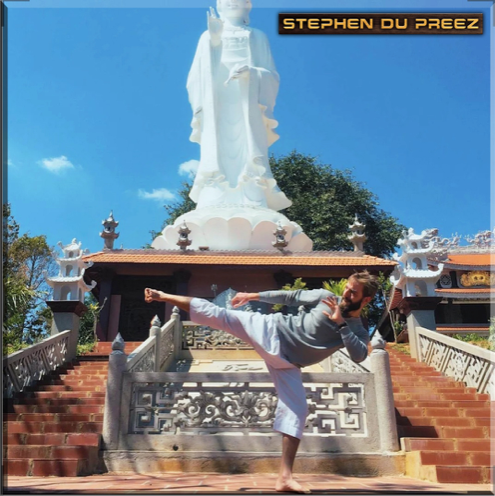Estimated reading time: 4-5 minutes
You don’t reach something you don’t aim for.
I’m going to start with a few wise quotes that echo aspects of this same truth.
- “Seek and you will find.”
- “Sow so that you may reap.”
- “Knock and the door will open.”
- “If you don’t ask, the answer will always be no.”
- “Fortune favours the bold.”
- “Seek ye first the kingdom of God and his righteousness; and all these things will be added unto you.”
People often keep their goals and aims fuzzy. The problem with specifying your goals is when you do, you specify your conditions for failure. Guess what? You’re going to fail frequently, that’s one of the biggest ways you learn and move forward! DONT FEAR FAILURE… FEAR INACTION.
We fear failure and we fear making the “wrong” choice, often so much so that we freeze and make no choice… But making no choice is in itself a choice! There is no escaping consequence, mistakes, tragedy and inevitable death, HOWEVER this is not bad news! It’s freedom! Its freedom to pick your poison, pick your sacrifices, pick your responsibilities and priorities. It’s freedom to manifest your being forthrightly as a soulful part of the fabric of reality. Forge forward to your heart’s desire, for what we do in life echoes for an eternity.
Being afraid to fail is the same as being afraid of life. Embrace failures as stepping stones to success, for that, is what they are if you are correctly engaged and learning!
If you don’t fail regularly, you can’t be doing much of anything meaningful in your life. Stretching to expand your being towards your greater potential requires the continuous process of numerous failures to reach momentary success… Then repeat. The evolution of your being and the realisation of your potential takes place in the field of failure.
If your goals are really fuzzy, your failures will be hidden in the haze. This way you can fool yourself into a false sense of security, or so-called ‘blissful ignorance’. This is willful blindness and failure to adopt responsibility.
It’s a most heinous crime. It is a theft of your dreams and your potential. You’re stealing your life’s own meaning when you do this!
When you fail to clarify what is of value to you, you are unable to be of value to it!
- Everyone wants to be valued!
- To be valued you need to be valuable!
- That means you need to add value in some meaningful way!
- To be of value, is to be of service to the betterment of something.
- When you engage with the task of bettering the “condition” of that which you love, you find meaning in life.
Being blind to what is of value to you, is a sin*. You are quite literally missing the point/mark. (*Sin was originally an archery term used to describe missing the mark/bullseye. Thinking of sin in this way, is conceptually more helpful than most vague notions).
How can you expect to lead a meaningful life if you are not clear on your beliefs and value hierarchy? How can you serve that which you love if you’re not clear what that is? How can you make the world a better place when you’re not even clear on what that means to you!
Meaningful action and movement towards desired outcomes, requires orientation. Effort without purpose is fruitless toiling.
You should frequently consider what your core values are. We need to grow, refine and when necessary, restructure our concepts and beliefs. When we can orientate ourselves functionally in the world, we can then move towards our desired outcomes.
Your brain is literally designed to reorganise its perception of reality around your aims.
We only process a small part of the reality around us to derive meaning from which to act. Make sure your aims are straight so that that which you perceive, and the meaning you derive from it, serves your value structure. (Our brains cannot handle all of the sensory information around us in any given movement, so we filter our perceptions through our value hierarchy and through expectations and desires. Make sure you tend to the garden of those filters, as your life literally depends on it.)
You have to specify your aim in order to be able to track and move towards your desired outcomes.
You need a value hierarchy and, what you put at the top of that hierarchy, REALLY MATTERS!
Every level and relationship in the hierarchy matters, as it will dictate the meaning you derive in life.
Work towards the highest possible good that you can conceive and articulate. Let it be the star in the sky that guides you forth. Let your own personal, evolving ideal inspire you; your vision of this ideal will grow and develop as you do. It will always contain the qualities you admire most.
Do the best you can with what you have, and what you know. When you know better, do better.
These are words of wisdom that have greatly impacted my life. It is my pleasure to share them with you and I truly hope they make an equal or greater impact on yours.
Warm regards
Stephen du Preez
P.S.
I draw on many sources to fuel my writing yet I would feel amiss if I did not offer acknowledgement to Dr Jordan Peterson, his work has influenced me profoundly, I strongly recommend looking up his talks, lectures and books.

Article Word Count: 930
Author: Stephen du Preez
Date: April 25th, 2020
